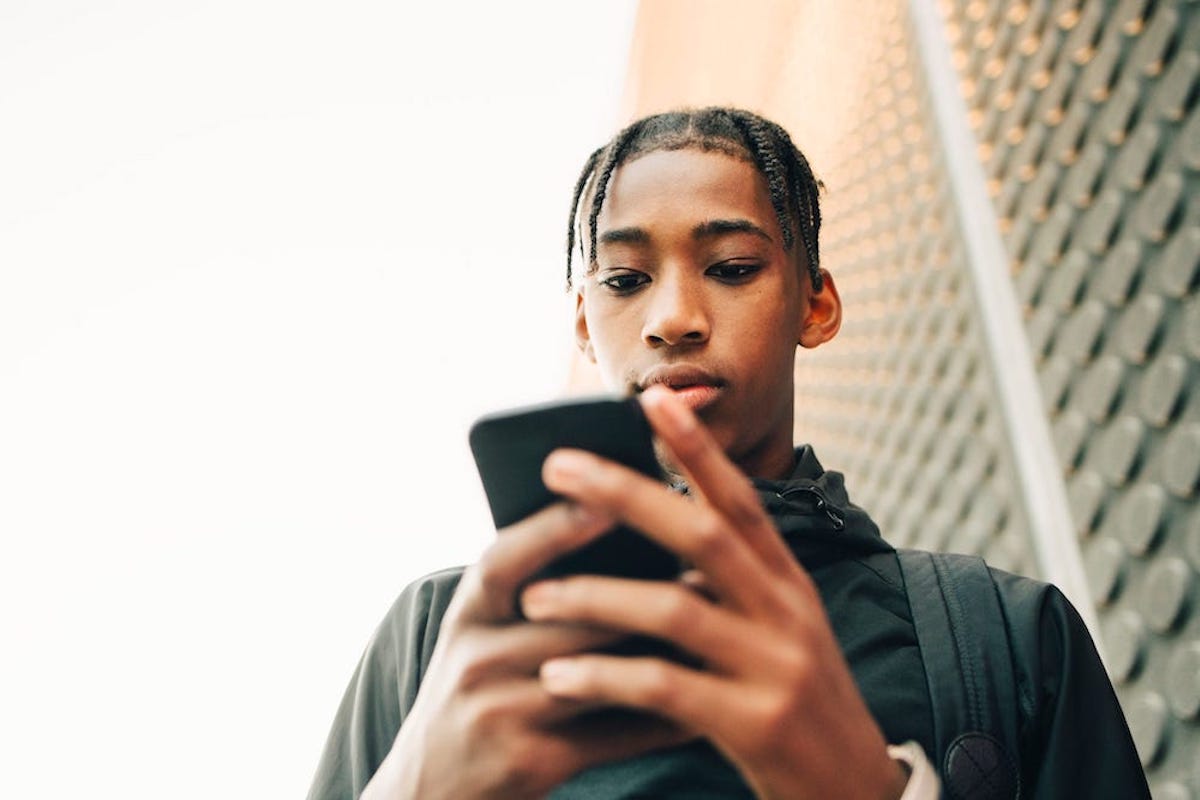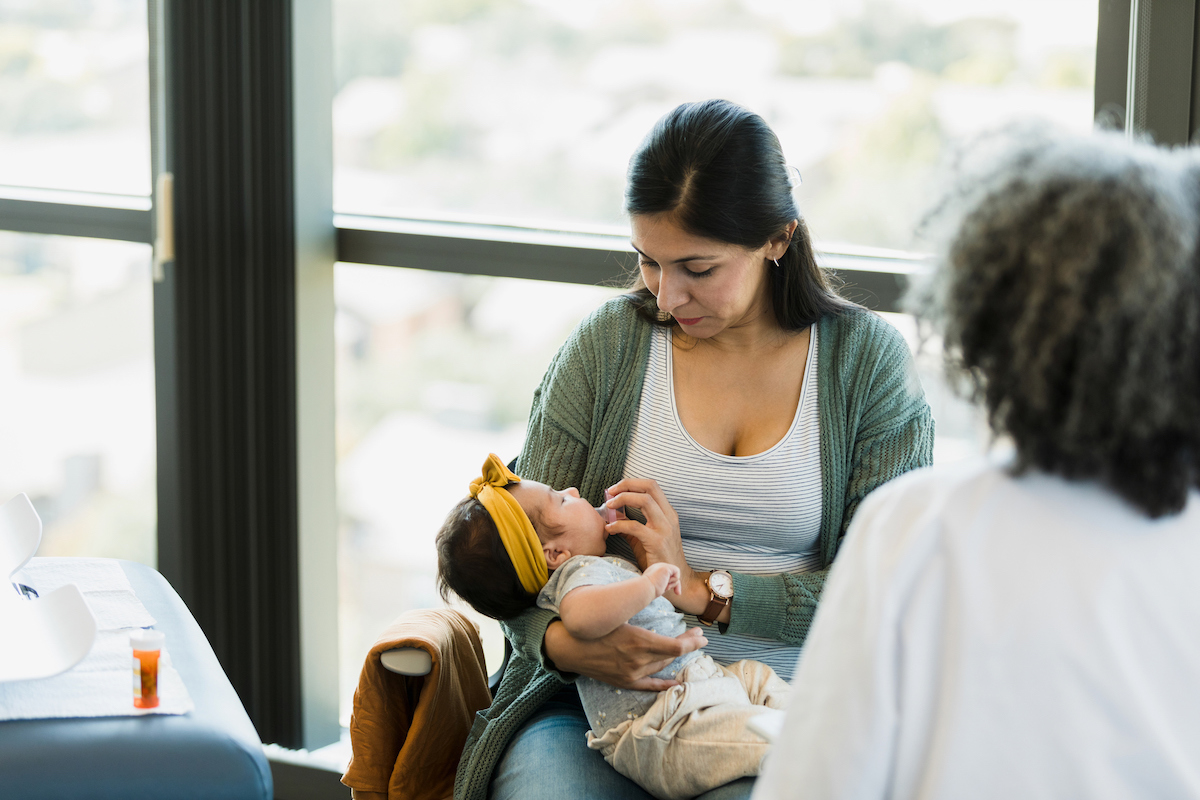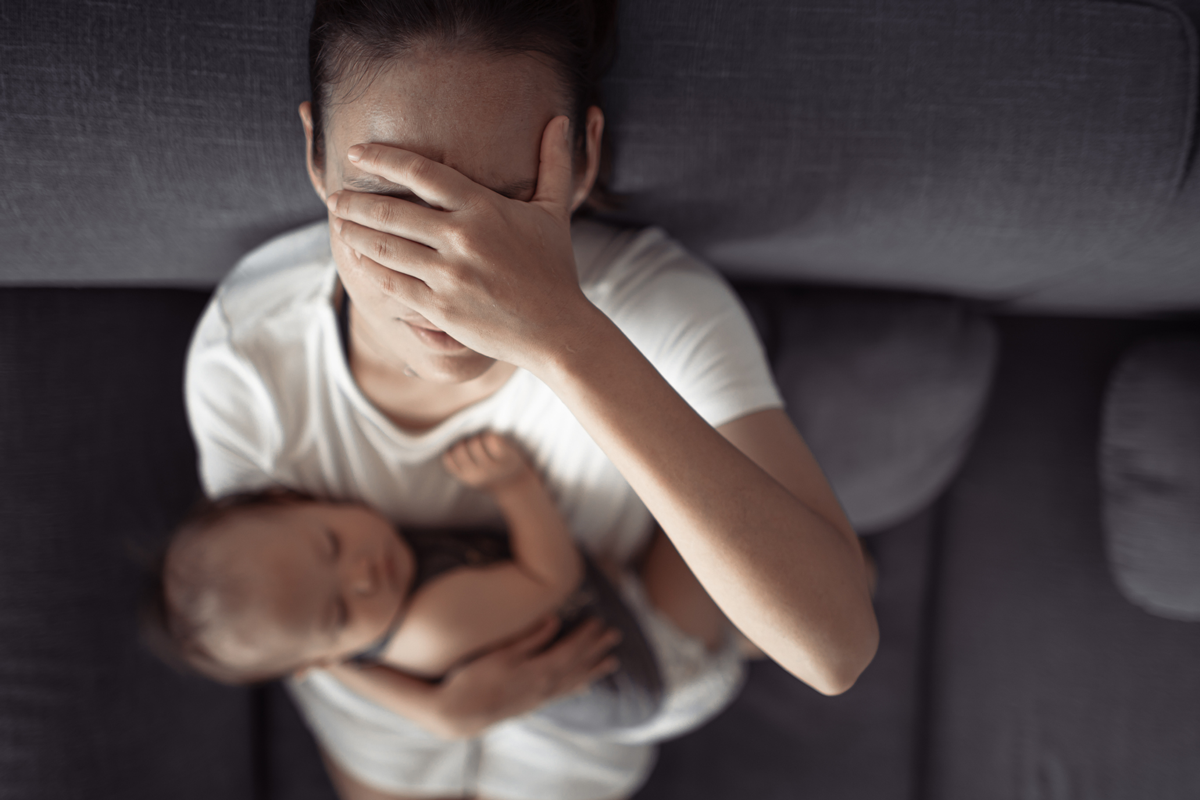Self-care is everywhere. Bubble baths, massages, Instagram encouraging you to “take time for yourself.” Get up early to have coffee and meditate, or take a forest walk. It can get to the point where self-care itself is yet another thing to check off the to-do list. Send emails. Make lunches. Clean Cheerios off floor. Take forest walk.
My podcast guest today, psychiatrist and author Pooja Lakshmin, wants to push back on this performative, box-checking, crystals-and-baths form of self-care. Her book Real Self-Care is about what it actually takes to create wellness for ourselves. On today’s episode, we talk about the book and get personal about what true self-care means for each of us.
I think this is the perfect listen headed into the holidays.
To spark your interest, here are three highlights from the conversation:
What does self-care look like for parents?
Emily Oster:
I don’t like the phrase “self-care” in general. I don’t like it in the context of parenting. I don’t like it in the context of being a mom. But 20% of women are diagnosed with postpartum depression. That surely understates the true burden. And throughout the life cycle, from the beginning, from when our kids are older, there is this incredibly hefty care burden which more often falls on moms…
And when people recognize this, there is then a lot of discussion of self-care. On Instagram, self-care is like a spa day: make sure you’re taking care of yourself and taking a spa day, getting a manicure, get a scented candle. But your book is titled Real Self-Care, and so is real self-care finding the right scent for your candle?
Pooja Lakshmin:
So the sub-subtitle of the book is “Crystals, Cleanses, and Bubble Baths Not Included.” And I actually pushed hard with my publisher, because it makes it a really long title. But I was like, “No, this is really important,” because this book is basically a culmination of a decade of professional and personal experience of the ways in which woo-woo wellness fails us.
I spend a lot of time up front in the book talking about how the real problem is our social structures. I wrote a piece for the New York Times back in 2021 — so, the height of the pandemic — [that I] called “This Is Betrayal, Not Burnout,” talking about moms who work outside the home and how really it’s about public policy, it’s about paid leave, it’s about affordable child care, access to good health insurance.
And it’s not our fault that we get seduced by all of this. Because let’s just say in my profession — psychiatry, mental health — it is so hard to find a therapist. If you call your insurance company, the work is sitting on hold for two hours to get a whole list of therapists who potentially say they’re taking new patients, but then you actually call all of them and they’re all like, “No, we’re not.” So when Instagram gives you ads for this pretty, beige, branded vitamin that’s going to cure your stress and that’s delivered in 24 hours and arrives at your doorstep.
How can you set better boundaries?
Pooja:
My conceptualization of boundaries is a little bit different than what you might hear. I talk about boundaries as the pause. I tell a story in the book about when I first graduated from residency at GW. And my mentor, who is the head of our women’s mental health clinic, took me out for lunch. I was bright-eyed, bushy-tailed, first day on faculty. And she was like, “The one piece of advice for you I have, Pooja, is you don’t have to answer your phone. You can let it go to voicemail, and then you can decide after you listen, you can decide how to respond.”
And that for me was a big aha because I had just come from med school and residency, where at that time we had pagers. And a pager would go off and you had this PTSD reaction, you had to call back. And then for me in that context, it was like, okay, sometimes it’s the front desk and they have insurance paperwork, and I can call them back and say, I’ll do that at the end of the day. Sometimes it’s a patient who I know has ADHD, and if she misses a day of her stimulant, she literally might get into a car accident. So I’m going to put that refill in. But I decide. So the boundary is the pause, and then you get to say yes, no, or negotiate, because the no always has a cost.
Again, no secret option C. The no has a cost. And if you are in a marginalized group, if you’re a woman of color, if you’re a black woman in corporate America, that no is going to have a higher cost. So it’s not always accessible, but the pause is. And then if you determine “Okay, you know what? I can’t say no to my boss right now because literally this is my livelihood,” then your goal is “Six months from now, I want to be closer to being able to say no. So what can I put in place?” So again, it’s the decision-making, but the boundary is the first step — realizing you even have a choice and taking that space.
How do you balance self-care with mom guilt?
Pooja:
[Sociologist] Martha Beck’s work has really been inspirational for me, because she’s studied culture for her entire career. And she talks about how women have to reconcile the irreconcilable in our society. And exactly what you’re talking about, how moms are taught that their selflessness is their value and also told at the same time that their self-care is something that they should be prioritizing and performing. Our whole culture is set up that way. It’s not an accident. So this guilt that you feel, it’s from the outside. It’s not actually yours.
The way that I frame it with my patients is to think of this metaphor: think of the guilt as like a faulty “check engine” light on your car dash. So you took your car, got the engine changed, everything checked out, it’s fine, but there’s the light that keeps flicking no matter what. It’s broken. It doesn’t give you any meaningful information, but it’s always there. And that’s what the guilt is. And so if you set your life decisions with guilt as your moral compass, so if you make all your choices in avoidance of guilt, that life just ends up with you as a martyr and angry, pissed. Nobody wants to be around you because you’re just the angry mom. Right? It’s not a good path.
The work with compassion is not giving [the guilt] power, just letting it be in the background. It’s just that “check engine” light. It doesn’t mean anything. It doesn’t have to guide you.
Full transcript
This transcript was automatically generated and may contain small errors.
Pooja’s book is about self-care as both more selfish and more important. It’s about taking care of ourselves as a way to invest in our families, to invest in the people we love, and in showing up for them in the best way. And it’s about drawing really clear boundaries and saying, what is it that I need? And what I need probably isn’t just an hour in a bath with a scented candle. Maybe what I need is more time to myself, or more time to invest in the things I love. And once we recognize that we can start making choices for our families, for ourselves, that prioritize that real deep self-care. The reality, and this comes up all the time in this book, is that what is your self-care is super subjective. It’s not a candle for everybody. It’s the things that you need to take care of your own mental health. And so this conversation, although it has some data, we talk about the book, it also gets pretty personal. We talk about the pieces of self-care that work for us. I hope that for you, something sparks here to think about the self-care that you can prioritize for yourself.
After the break, my conversation with Pooja Lakshmin.
Pooja, thank you so much for joining me. I’m extremely excited to talk. Before we get going, can you just introduce yourself?
And it’s not our fault that we get seduced by all of this because let’s just say in my profession, psychiatry, mental health, it is so hard to find a therapist. It is so hard to find a therapist. And so if you call your insurance company, the work is sitting on hold for two hours to get a whole list of therapists who potentially say they’re taking new patients, but then you actually call all of them and they’re all like, “No, we’re not.” So when Instagram gives you ads for this pretty beige branded vitamin that’s going to cure your stress, and that’s delivered in 24 hours and arrives at your doorstep, of course.
Yeah. Tell me, okay, I was going to do boundaries then. So let’s do boundaries now. Tell me about boundaries.
Again, no secret option C. The no has a cost. And if you are in a marginalized group, if you’re a woman of color, if you’re a black woman in corporate America, that no is going to have a higher cost. So it’s not always accessible, but the pause is, and then if you determine “Okay, you know what? I can’t say no to my boss right now because literally this is my livelihood,” then your goal is “Six months from now, I want to be closer to being able to say no. So what can I put in place?” So again, it’s the decision making, but the boundary is the first step, the realizing you even have a choice and taking that space.
So you took your car, got the engine changed, everything checked out, it’s fine, but there’s the light that keeps flicking no matter what. It’s broken. It doesn’t give you any meaningful information, but it’s always there. And that’s what the guilt is. And so if you set your life decisions with guilt as your moral compass, so if you make all your choices in avoidance of guilt, that life just ends up with you as a martyr and angry, pissed. Nobody wants to be around you because you’re just the angry mom. Right? It’s not a good path. So you have to actually… The work is with compassion is not giving it power, just letting it be in the background. It’s just that check engine light. It doesn’t mean anything. It doesn’t have to guide you.
But when people have made some choice, then there’s again this temptation to say, “Well, you should make my choice, because my choice about number of kids are breastfeeding or sleep training or what kind of diapers to use or where to send my kid to school or whatever it is, that must be so right that it’s right for everybody.” And that so quickly moves into this, in the case of this person you talked to, so deeply inappropriate interactions with another person. When you say it like that in the abstract, can you imagine saying such a thing to someone about other choices they make? It’s so rude.
And also recognizing and having to think through, “Wow do I really want to spend my time? What do I really want to be doing? Do I want to be on calls all the time, or do I want to be writing? Do I want to be seeing patients and getting really deep with folks in their life? Or do I want to be responding to emails?” So I’m trying to figure that out. I don’t have all the answers, but the things that help me… Well, I should back up and say, in the context of all this, I had a whole bunch of health issues last month. I had to get my gallbladder out because I had gallstones. I was in the hospital. I had a kidney stone. So it was not subtle that I needed to rest.
But for me, thinking about it as something that I am investing in and trying to do better in. And I think part of what’s valuable there is it is a place that I can fail with no consequences. The only person who cares if I don’t run as fast as I wish to, is me. That’s it. No one else… Not that people don’t care, because they could care because they wanted me to be happy, but nobody else is like, “Boy, I’m so disappointed that you didn’t break 90 minutes in the half-marathon.” Nobody else caress except for me. But it’s interesting to explore. Okay, when there’s a disappointment like that in this way that is objectively incredibly low stakes, but to me feels very high stakes because I care about it for whatever reason.
Experimenting with that and how I can, not get through that, but how I deal with that, has actually been really interesting as a way to think about how I deal with failures that matter more in the other parts of my life. It’s also been interesting because it has been something that I’ve been willing to prioritize, that is for me, and that I can only do because my kids are now bigger. But it’s been a really good exercise and being like, “Okay, I’m not going to be able to walk you to school because I need to run 17 miles this morning and I have to leave before you go to school, and you’ll have to walk yourself to school,” which is not a boundary that I have typically put up with my kids. And somehow this is a thing that gives me the freedom to make that boundary, which I could have made anyway. But somehow this is enough for me.
So it absolutely fits. And I think that’s the thing about sometimes other people’s reactions. We can get stuck on them and maybe worry and take in some of that judgment, but I think it’s great. I have a patient who board games is their self-care with their partner. And it’s something that’s so out of the routine. They actually… They do it, stay up late and do it. So I think that that’s actually brilliant.
Community Guidelines












Log in